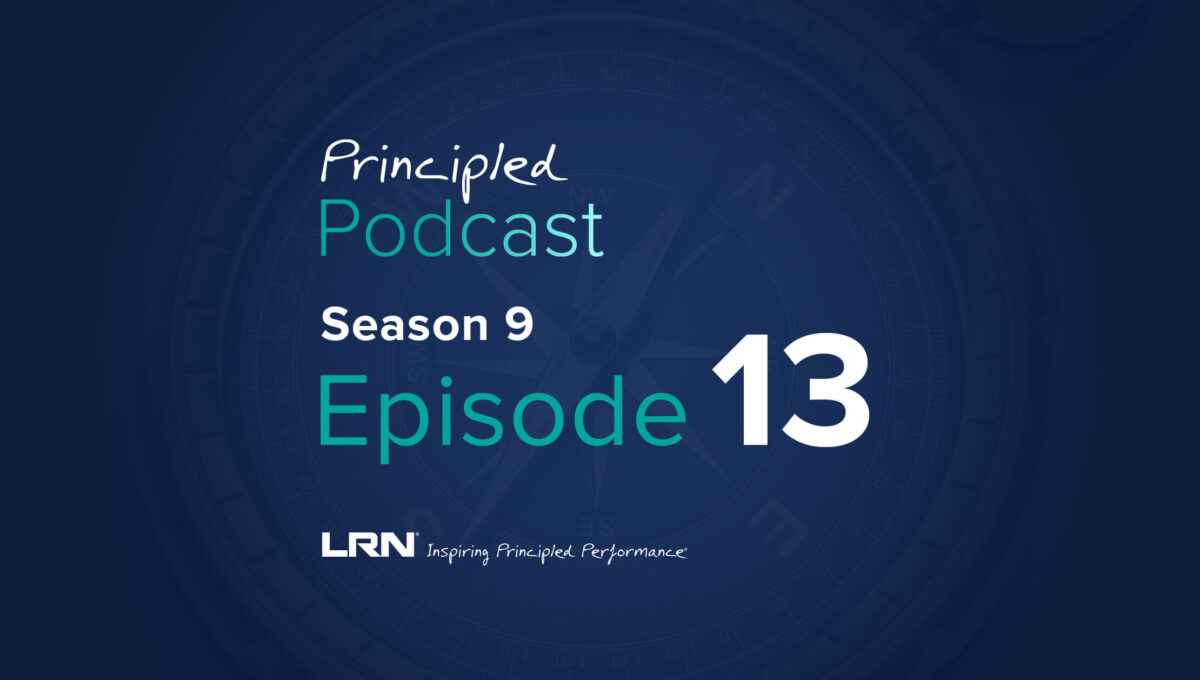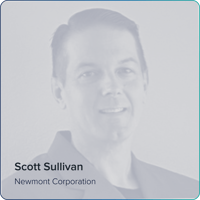What you’ll learn on this podcast episode
Do hotlines really work? According to the 2019 Global Business Survey conducted by the Ethics and Compliance Initiative, only 6% of E&C complaints went to hotlines, compared to 51% to direct supervisors and the remainder to higher management or human resources. So why are so many E&C programs—not to mention boards of directors—relying principally on hotline data to assess company culture and compliance? In this episode of LRN’s Principled Podcast, Susan Divers talks about reimagining hotlines with Scott Sullivan, the chief integrity and compliance officer at Newmont Corporation. Listen in as Scott shares how his team reinvented Newmont’s hotline channel and reporting process to separate the wheat from the chaff and gain meaningful information.
Guest: Scott Sullivan
Scott Sullivan is the Chief Integrity & Compliance Officer of Newmont Corporation, the world’s leading gold company. Newmont has approximately 15,000 employees and 15,000 contractors and has 12 operating mines and 2 non-operated JVs in 9 countries. Mr. Sullivan oversees, develops, implements, and manages Newmont’s integrity and compliance program including ethics, anti-bribery, corporate investigations, and global trade compliance. Previously, Mr. Sullivan was the Chief Ethics & Compliance Officer of a global manufacturer of fluid motion and control products with approximately 17,000 employees operating in 55 countries. Mr. Sullivan has written and contributed numerous articles on compliance programs, anti-bribery/FCPA, export controls, economic sanctions, and other ethics and compliance topics to a variety of publications. Mr. Sullivan is also a frequent local, national, and international speaker, moderator, and conference organizer on compliance, anti-bribery/FCPA, export controls, and economic sanctions.
Host: Susan Divers
Susan Divers is a senior advisor with LRN Corporation. In that capacity, Ms. Divers brings her 30+ years’ accomplishments and experience in the ethics and compliance area to LRN partners and colleagues. This expertise includes building state-of-the-art compliance programs infused with values, designing user-friendly means of engaging and informing employees, fostering an embedded culture of compliance and substantial subject matter expertise in anti-corruption, export controls, sanctions, and other key areas of compliance.
Prior to joining LRN, Mrs. Divers served as AECOM’s Assistant General for Global Ethics & Compliance and Chief Ethics & Compliance Officer. Under her leadership, AECOM’s ethics and compliance program garnered six external awards in recognition of its effectiveness and Mrs. Divers’ thought leadership in the ethics field. In 2011, Mrs. Divers received the AECOM CEO Award of Excellence, which recognized her work in advancing the company’s ethics and compliance program.
Mrs. Divers’ background includes more than thirty years’ experience practicing law in these areas. Before joining AECOM, she worked at SAIC and Lockheed Martin in the international compliance area. Prior to that, she was a partner with the DC office of Sonnenschein, Nath & Rosenthal. She also spent four years in London and is qualified as a Solicitor to the High Court of England and Wales, practicing in the international arena with the law firms of Theodore Goddard & Co. and Herbert Smith & Co. She also served as an attorney in the Office of the Legal Advisor at the Department of State and was a member of the U.S. delegation to the UN working on the first anti-corruption multilateral treaty initiative.
Mrs. Divers is a member of the DC Bar and a graduate of Trinity College, Washington D.C. and of the National Law Center of George Washington University. In 2011, 2012, 2013 and 2014 Ethisphere Magazine listed her as one the “Attorneys Who Matter” in the ethics & compliance area. She is a member of the Advisory Boards of the Rutgers University Center for Ethical Behavior and served as a member of the Board of Directors for the Institute for Practical Training from 2005-2008.
She resides in Northern Virginia and is a frequent speaker, writer and commentator on ethics and compliance topics. Mrs. Divers’ most recent publication is “Balancing Best Practices and Reality in Compliance,” published by Compliance Week in February 2015. In her spare time, she mentors veteran and university students and enjoys outdoor activities.





